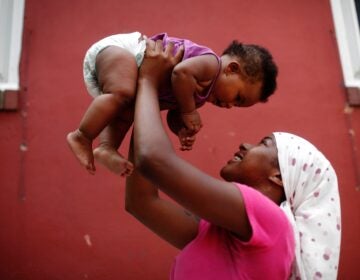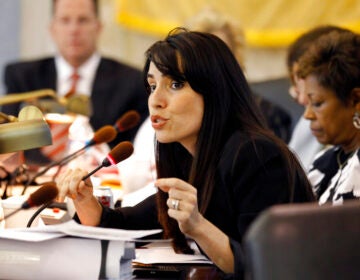Breastfeeding mothers in New Jersey could soon be exempt from jury duty
Under current state law, breastfeeding is not allowed in a jury setting.

(Alexandru Nika/BigStock)
The New Jersey legislature could soon give final approval to a measure exempting nursing mothers from jury duty for one year.
Assemblyman Reginald Atkins, one of the prime sponsors of the legislation A-1992 in the Lower House, said it is a matter of common sense. The state Senate has already approved the bill.
“Supporting nursing mothers isn’t just about providing convenience,” he said. “It’s about recognizing and valuing their commitment to their children’s health and wellbeing. We’ve had young ladies who were on jury duty, their breasts were engorged as a result of just having a baby, and literally there was nowhere for them to go, which causes an issue and a problem.”
He said the bill is a step toward creating a supportive and inclusive environment for nursing mothers so they can focus on their babies’ health.
California, Idaho, Kansas, Kentucky, Mississippi, Oregon and Nebraska currently allow nursing mothers to postpone jury duty until they are no longer breastfeeding. Illinois, Oklahoma and Virginia permit nursing moms to postpone jury duty upon request.
Under current New Jersey law, breastfeeding in public is allowed. However, the law would not cover the jury setting because a baby could disrupt a court proceeding.
Sandy Doyle, a La Leche League leader in South Jersey, said whether a mother is expressing breast milk or feeding a baby directly, demand and scheduling can and does change, and following the rules of a jury can be challenging if not impossible.
“When a mother is nursing her baby, there is a lot of concern over separation or timing,” she said. “A baby is feeding on demand and that would be a disruption to their feeding pattern. There’s a lot of variability. I don’t think any of the variables probably meet the schedule of the courts.”
Doyle also pointed out that if a mother is nursing her baby and doesn’t feed or pump on a regular schedule, it can be painful, and the mother could require medical attention.
She said it’s important to support and encourage breastfeeding. “There’s reduced ear infections [in babies] and reduced illness in general,” she said. “And for the mother, there is a reduced risk of breast and ovarian cancer.”
A spokesperson for the American Academy of Pediatrics said the AAP recommends exclusive breastfeeding for approximately the first six months of the baby’s life. After that, pediatricians support “continued breastfeeding, along with appropriate complementary foods introduced at about six months, as long as mutually desired by mother and child for two years or beyond.”
Atkins said while it’s important to support the well-being of mothers and infants in the Garden State, a system of checks and balances will be developed to ensure that a woman who claims she is a nursing mother truly is a nursing mother.
“That will be left up to the Department of Health and how they are going to monitor that,” he said.

Get daily updates from WHYY News!
WHYY is your source for fact-based, in-depth journalism and information. As a nonprofit organization, we rely on financial support from readers like you. Please give today.





